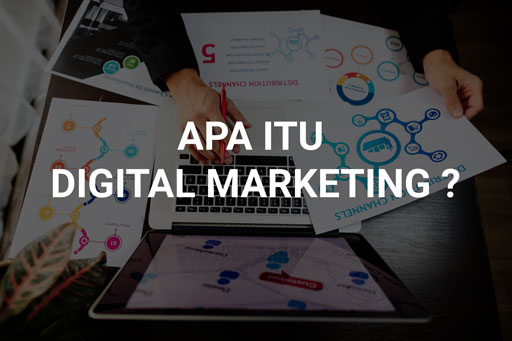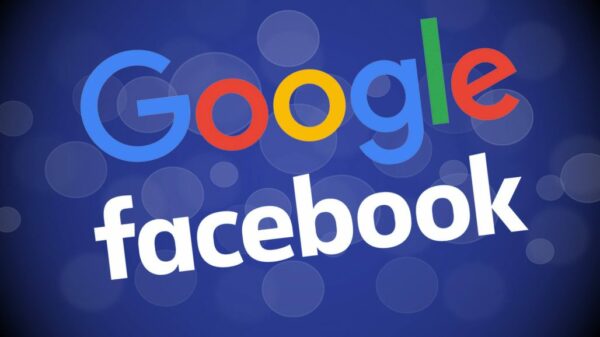What is Digital Marketing in 2023? Advantages, Types and Examples

Do You Understand What Digital Marketing Is? Digital marketing is a technique for promoting products or businesses through digital media. In today’s digital era, digital marketing is becoming increasingly essential to enhance your business’s online presence and boost your chances of gaining more customers. In this article, we will discuss the types of digital marketing and their benefits for your business. Keep reading to discover how to maximize your business potential through digital marketing.
Definition of Digital Marketing and Types of Strategies Suitable for Your Business
Digital technology has transformed how businesses conduct marketing. Digital marketing, or promoting products and services digitally, has evolved rapidly, often resulting in various strategies emerging within a relatively short time frame. Broadly speaking, digital marketing strategies are usually influenced by the following four aspects:
- How Businesses Define Campaign Goals
- The Scale and Amount of Resources Available
- Market Momentum
- Customer Experience
Read More: Steps to Develop an Effective Digital Marketing Strategy for Businesses
Advantages of Digital Marketing and Its Benefits Over Conventional Marketing
Digital marketing activities offer a variety of benefits, including:
- Utilizing data and advanced machine learning, digital marketing can target markets more precisely based on your marketing objectives.
- Digital advertising programs enable businesses to achieve campaign results much faster.
- Offers more measurable marketing costs compared to conventional marketing.
- Provides the ability to target consumers more specifically, which is challenging with traditional marketing.
- Enables small businesses to compete with larger companies in the digital space.
- Allows businesses to measure the success and impact of marketing campaign performance.
- Provides better customer interactive experiences through omnichannel methods.
- Marketing strategies designed can tap into global market potential via the internet and social media.
- Allows businesses to work more efficiently and effectively by automating certain processes through digital marketing technologies.
- Accelerates the process of positioning your business as an expert in its field.
Digital marketing offers many advantages over conventional strategies. It can target a more specific audience, increasing the likelihood of meeting goals and boosting conversion rates. However, it is worth noting that digital marketing strategies can be more expensive than conventional methods. Therefore, ensure that your marketing strategy is tailored to market needs before crafting your approach.
How to Formulate a Digital Marketing Strategy for Your Business
It is essential for every business to formulate a digital marketing strategy to market their products or services more effectively in the digital era. Some key steps in formulating a digital marketing strategy include:
- Determining campaign objectives and budget.
- Defining the campaign’s main message.
- Allocating media and KPIs as benchmarks.
- Planning transparent monitoring and tracking.
When implementing a digital marketing strategy, businesses should consider the types of digital marketing they wish to use, such as advertising on Google Ads, search engine optimization, or short videos with quality content.
Types of Digital Marketing and Popular Digital Marketing Channels
There are numerous digital channels to promote your business’s products and services. Below are examples of some popular media used in modern digital marketing strategies:
Search Engine Marketing (SEM)
Search Engine Marketing refers to a digital marketing strategy aimed at enhancing a website’s visibility on search engine results pages like Google or Bing. SEM is usually conducted in two ways: paid search ads (Search Engine Advertising) or organic optimization on the website (Search Engine Optimization). SEM allows businesses to utilize search engines as a potential source of traffic by targeting users searching for the products or services offered by the business. SEM is particularly suitable for B2B (Business-to-Business) models.
Search Engine Optimization (SEO)
Search Engine Optimization, or SEO, is a digital technique aimed at improving the quality and quantity of website traffic through organic search engine results such as Google or Bing. SEO involves optimizing website content and structure, using relevant keywords, link building, and other techniques to help websites achieve higher rankings in search engine results. By optimizing a website with SEO techniques, businesses can enhance their website visibility and attract more potential visitors organically. This positively impacts sales conversions and overall business growth.
Social Media Marketing (SMM)
Social Media Marketing refers to digital marketing methods that utilize social media platforms to promote products or services. This involves creating engaging and relevant content for target markets, utilizing paid social media advertising, and actively interacting with social media users. In recent years, social media has become one of the most effective digital marketing strategies due to its widespread and growing usage. By leveraging social media as a marketing tool, businesses can build closer, more personal relationships with their target audience and create a stronger online brand presence. SMM also helps in boosting brand awareness, increasing website traffic, and achieving higher sales conversions.
Email Marketing
Email Marketing involves sending emails to customers or prospective customers to promote products or services. This technique includes creating engaging, relevant email messages with attractive designs that are easy for the target audience to read. Email Marketing can also be used to share information about offers, promotions, or special events with existing customers. By using Email Marketing techniques, businesses can build closer relationships with their customers, enhance brand awareness, and achieve higher sales conversions. Additionally, it helps increase website traffic, gain more customers, and strengthen relationships with the target audience.
Content Marketing
Content Marketing is a digital marketing technique involving the creation and distribution of relevant and valuable content for the target audience. This technique includes using various types of content such as articles, blogs, videos, and infographics to capture the audience’s attention and build closer relationships. The content created must align with the business and the products or services offered while addressing the audience’s problems or questions. Through Content Marketing, businesses can boost brand awareness, build authority and trust among their target audience, and achieve higher sales conversions. It also helps improve website traffic and attract higher-quality visitors.
Considering Using Digital Marketing Services for Your Business?
After learning about the benefits of digital marketing and considering its implementation in your business, here are some factors to think about:
- Digital marketing planning can be highly complex and time-consuming.
- Digital marketing technologies and trends evolve rapidly.
Hiring a digital marketing expert can be the solution for your business. However, consider the following points:
- Understanding Business Needs: Choose a digital marketing service that understands your business needs and can provide solutions or strategies to improve performance and ROI.
- Required Expertise: Ensure the selected digital marketing service possesses the necessary expertise, such as SEO, SEM, and SMM, according to your business requirements.
- Clear Competency Standards: Look for certified partners, such as Google Partner, Meta Preferred Agency, or TikTok Agency Partner.
- Proven Experience: Select a digital marketing service with proven experience in managing campaigns. Review their portfolio and client testimonials.
- Competitive Pricing: Determine your budget and choose a service offering competitive pricing aligned with your business needs.
- Responsiveness and Open Communication: Opt for a responsive digital marketing service with transparent communication to keep you updated on campaign progress.
- Reports and Analysis: Choose a service that provides easy-to-understand reports and analysis to measure campaign success.
- Staying Updated: Ensure the service follows the latest technological advancements and search engine algorithms for optimal results.
Conclusion
Through this article, we have learned that:
- Digital Marketing is a strategy for promoting products or services using digital media.
- It is a data-driven marketing approach.
- A well-planned digital marketing strategy is essential, from setting goals to performance measurement.





